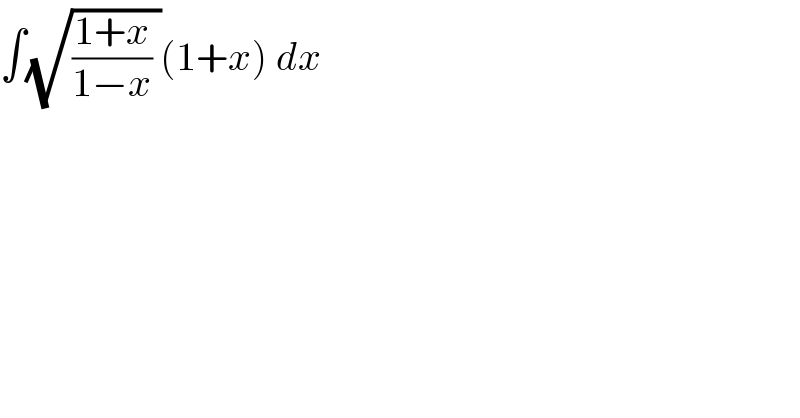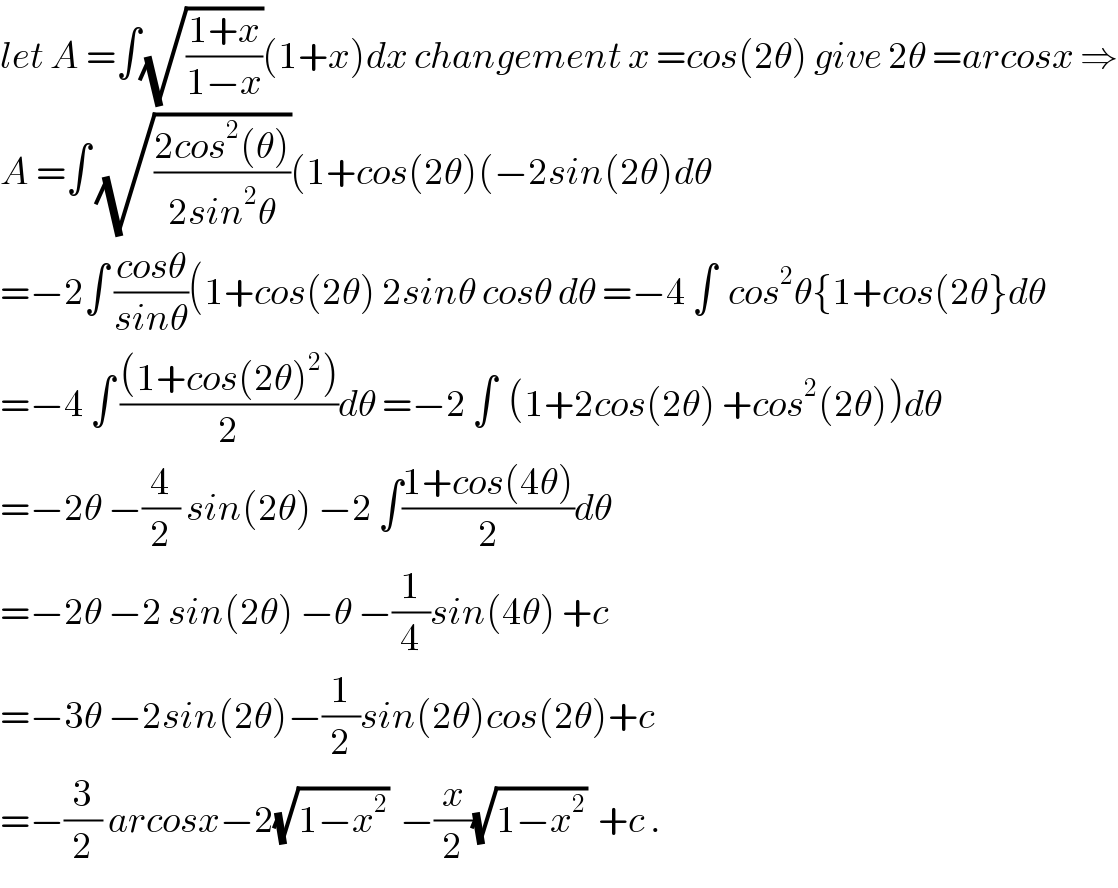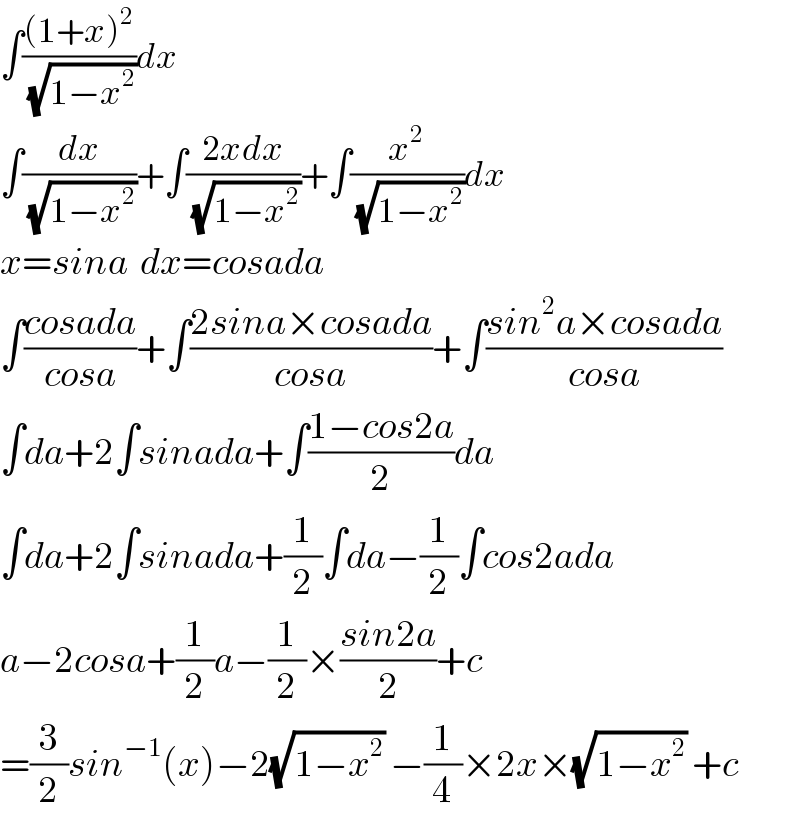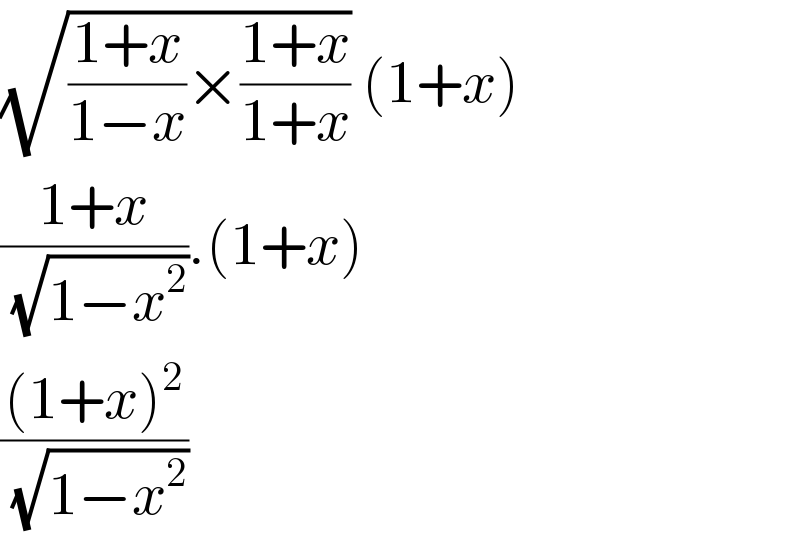
Question and Answers Forum
Question Number 62907 by aliesam last updated on 26/Jun/19

Commented by mathmax by abdo last updated on 26/Jun/19

Answered by Hope last updated on 26/Jun/19

Commented by mathmax by abdo last updated on 26/Jun/19

Commented by aliesam last updated on 26/Jun/19

Commented by peter frank last updated on 26/Jun/19

Commented by aliesam last updated on 27/Jun/19

